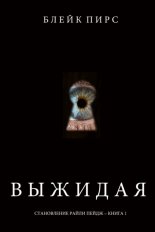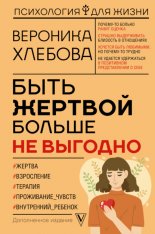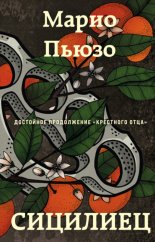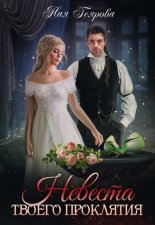Искусство отдыха. Как качественно отдыхать в эпоху вечной занятости Хэммонд Клодия
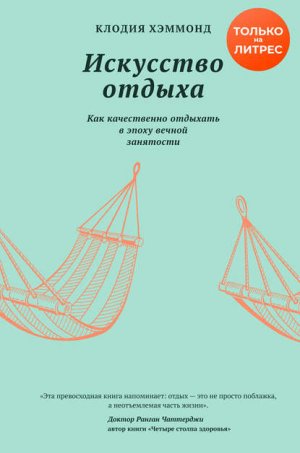
Larson, R.W. (2014) ‘A Comparison of Positive and Negative Episodes of Solitude’. Master’s Thesis, Amherst: University of Massachusetts
Вернуться
182
Morris, C. (Ed.) (1949) The Journeys of Celia Fiennes. London: The Cresset Press, 67
Вернуться
183
Korpela, K.M. (2003) ‘Negative Mood and Adult Place Preference’. Environment and Behavior, 35 (3), 331–46
Вернуться
184
Jonson, S.A.K. (2011) ‘The Use of Nature for Emotional Regulation: Towards a Conceptual Framework’. Ecpsychology, 3 (3), 175–85
Вернуться
185
Можете послушать мое интервью с Ричардом Мэйби на All in the Mind. BBC Radio 4, 26.06.2012. https://www.bbc.co.uk/ sounds/play/b01k1nl3
Вернуться
186
Ulrich, R.S. (1984) ‘View Through a Window May Influence ecovery from Surgery’. Science, 224, 420–1
Вернуться
187
Ulrich, R. et al (1993) ‘Exposure to Nature and Abstract Pictures on Patients Recovering from Open Heart Surgery’. Psychophysiology: Journal of the Society for Psychophysiological Research, 30, S7
Вернуться
188
Отличный обзор немногочисленных исследований в этой области – Thompson, C.J. (2011) ‘Does Participating in Physical Activity in Outdoor Natural Environments Have a Greater Effect on Physical and Mental Well-being than Physical Activity Indoors? A Systematic Review’. Environmental Science & Technology, 45 (5), 1761–72
Вернуться
189
Lee, K.E. (2015) ‘40-second Green Roof Views Sustain Attention: The Role of Micro-breaks in Attention Restoration’. Journal of Environmental Psychology, 42 (2015) 182–9
Вернуться
190
Ulrich, R.S. (2008) ‘Biophilic Theory and Research for Healthcare Design’. In Kellert, S.R. et al (Eds) Biophilic Design: The Theory, Science and Practice of Bringing Buildings to Life. New Jersey: John Wiley
Вернуться
191
Lohr, V.L. & Pearson-Mims, C.H. (2006) ‘Responses to Scenes with Spreading, Rounded and Conical Tree Forms’. Environment and Behavior, 38, 667–88
Вернуться
192
Joye, Y. & Van den Berg, A. (2011) ‘Is Love for Green in our Genes? A Critical Analysis of Evolutionary Assumptions in Restorative Environments Research’. Urban Forestry & Urban Greening,10 (4), 261–8
Вернуться
193
Martens, D. et al (2011) ‘Walking in “Wild” and “Tended” Urban Forests: The Impact on Psychological Well-being’. Journal of Environmental Psychology, 31, 36–44
Вернуться
194
Parsons, R. (1991) ‘The Potential Influences of Environmental Perception on Human Health’. Journal of Environmental Psychology, 11, 1–23
Вернуться
195
Gatersleben, B. & Andrews, M. (2013) ‘When Walking in Nature Is Not Restorative – The Role of Prospect and Refuge’. Health & Place, 20, 91–101
Вернуться
196
Hagerhall, S.M. (2004) ‘Fractal Dimensions of Landscape Silhouette Outlines as a Predictor of Landscape Preference’. Journal of Environmental Psychology, 24, 247–55
Вернуться
197
Bratman, G.N. et al (2015) ‘Nature Experience Reduces Rumination and Subgenual Prefrontal Cortex Activation’. PNAS, 112 (28), 8567–72
Вернуться
198
Korpela, K. et al (2017) ‘Enhancing Wellbeing with Psychological Tasks Along Forest Trails’. Urban Forestry & Urban Greening, 26, 25–30
Вернуться
199
Richardson, M. & Sheffield, D. (2015) ‘Reflective Self-attention: A More Stable Predictor of Connection to Nature than Mindful Attention’. Ecopsychology, 7 (3), 166–75
Вернуться
200
Jamie, K. (2012) Sightlines. London: Sort of Books
Вернуться
201
Earth Science & Remote Sensing Unit High Definition Earth Viewing System. NASA, 30.04.2014. https://eol.jsc.nasa.gov/ESRS/HDEV/
Вернуться
202
Kaplan, R. & Kaplan, S. (1989) The Experience of Nature: A Psychological Perspective. Cambridge: Cambridge University Press
Вернуться
203
Ratcliffe, E. & Korpela, K. (2017). ‘Time- and Self-related Memories Predict Restorative Perceptions of Favorite Places Via Place Identity’. Environment and Behavior, 50 (6), 690–720
Вернуться
204
Wyles, K.J. et al (2017) ‘Are Some Natural Environments More Psychologically Beneficial than Others? The Importance of Type and Quality on Connectedness to Nature and Psychologica Restoration’. Environment and Behavior, 51 (2), 111–43
Вернуться
205
Van den Berg, A. et al (1998) ‘Group Differences in the Aesthetic Evaluation of Nature Development Plans: A Multilevel Approach’. Journal of Environmental Psychology, 18, 141–57
Вернуться
206
Diener, E. et al (2009) ‘New Well-being Measures: Short Scales to Assess Flourishing and Positive and Negative Feelings’. Social Indicators Research, 97, (2), 143–56
Вернуться
207
Nell, V. (1988) ‘The Psychology of Reading for Pleasure: Needs and Gratifications’. Reading Research Quarterly, 23 (1), 6–50
Вернуться
208
Четыре красные стороны и восемь белых.
Вернуться
209
The Sleep Council (2013) The Great British Bedtime Report. Published by the consumer education arm of the trading body for bed manufacturers.
Вернуться
210
Rizzolo, D. et al (2009) ‘Stress Management Strategies for Students: The Immediate Effects of Yoga, Humor, and Reading on Stress’. Journal of College Teaching and Learning, 6 (8), 79–88
Вернуться
211
Jin, P. (1992) ‘Efficacy of Tai Chi, Brisk Walking, Meditation, and Reading in Reducing Mental and Emotional Stress’. Journal of Psychosomatic Research, 36 (4) 361–70
Вернуться
212
Smith, C.E. (2000) ‘The Real-world Reading Practices of Adults’. Journal of Literacy Research, 32 (1), 25–52
Вернуться
213
Vogrini, A. (2008) The Novel-Reading Panic in 18th-Century England: An Outline of an Early Moral Media Panic. Ljubljana: sity of Ljubljana
Вернуться
214
Mar, R.A. et al (2011) ‘Emotion and Narrative Fiction: Interactive Influences Before, During, and After Reading’. Cognition and Emotion, 25 (5), 813–33
Вернуться
215
Huestegge, L. (2010) ‘Effects of Vowel Length on Gaze Durations in Silent and Oral Reading’. Journal of Eye Movement Research, 3 (5) 1–18
Вернуться
216
Hsu, C.T. et al (2014) ‘Fiction Feelings in Harry Potter: Haemodynamic Response in the Mid-cingulate Cortex Correlates with Immersive Reading Experience’. Neuroreport, 25 (17), 1356–61
Вернуться
217
Pullman, P. (2006) ‘The War on Words’. The Guardian, 06 11 2006
Вернуться
218
Перевод Атаровой К.
Вернуться
219
Woolf, V. (1932) ‘How One Should Read a Book’. In The Common Reader. Second Series. London: Vintage
Вернуться
220
Alexander, J. & Jarman, R. (2018) ‘The Pleasures of Reading Non-fiction’. Literacy, 52 (2), 78–85
Вернуться
221
Baden, D. (2015) ‘Shock! Horror! Behind the Ethics and Evolution of the Bad News Business. The Conversation, 27.03.2015. http://theconversation.com/shock-horror-behind-theethics-and-evolution-of-the-bad-news-business39211
Вернуться
222
Guardian Review, 07 04 2018
Вернуться
223
Billington, J. et al (2016) ‘A Literature-based Intervention for People with Chronic Pain’. Arts & Health, 8 (1), 13–31
Вернуться
224
Dehghani, M. et al (2017) ‘Decoding the Neural Representation of Story Meanings Across Languages’. Human Brain Mapping, 38, 6096–106
Вернуться
225
Tamir, D.I. et al (2016) ‘Reading Fiction and Reading Minds: The Role of Simulation in the Default Network’. Social, Cognitive and Affective Neuroscience, 11 (2), 215–24
Вернуться
226
Feng, S. et al (2013) ‘Mind Wandering While Reading Easy and Difficult Texts’. Pychonomic Bulletin & Review, 20 (3), 586–92
Вернуться
227
Franklin, M.S. et al (2011) ‘Catching the Mind in Flight: Using Behavioral Indices to Detect Mindless Reading in Real Time’. Psychonomic Bulletin Review, 18 (5), 992–7
Вернуться
228
Steinbeck, J. (1930) ‘In Awe of Words’, The Exonian, 75th Anniversary Edition, Exeter: Exeter University
Вернуться
229
Rane-Szostak, D. & Herth, K.A. (1995) ‘Pleasure Reading, Other Activities, and Loneliness in Later Life’. Journal of Adolescent & Adult Literacy, 39 (2), 100–08
Вернуться
230
Massimini, F. et al (1988). ‘Flow and Biocultural Evolution’. In M. Csikszentmihalyi & I. S. Csikszentmihalyi (Eds) Optimal e: Cambridge University Press
Вернуться
231
imlea, M. et al (2018) ‘The Flow Engine Framework: A Cognitive Model of Optimal Human Experience’. Europe’s Journal of Psychology, 14 (1), 232–53
Вернуться
232
Mar, R.A. et al (2011) ‘Emotion and Narrative Fiction: Interactive Influences Before, During and After Reading’. Cognition and Emotion, 25 (5), 818–33
Вернуться
233
Rosenbaum, J.E. & Johnson, B.K. (2016) ‘Who’s Afraid of Spoilers? Need for Cognition, Need for Affect, and Narrative Selection and Enjoyment’. Psychology of Popular Media Culture, 5 (30), 273–89
Вернуться
234
Evangelou, M. et al (2005) Birth to School Study: A Longitudinal Evaluation of the Peers Early Education Partnerhip. Oxford: Oxford University Research Reports SSU/2005/FR/017
Вернуться
235
Office of National Statistics, Leisure Time in the UK. ONS, 24 10 2017. https://www.ons.gov.uk/economy/nationalaccounts/satelliteaccounts/articles/leisuretimeintheuk/2015
Вернуться
236
Office of National Statistics, Leisure Time in the UK. ONS, 24 10 2017. https://www.ons.gov.uk/economy/nationalaccounts/satelliteaccounts/articles/leisuretimeintheuk/2015#those-employedfull-time-took-the-least-leisure-time-but-enjoyed-it-most
Вернуться
237
Gershuny, J. (2011) Time-Use Surveys and the Measurement of National Well-being. Oxford: Centre for Time-use Research, Department of Sociology, University of Oxford
Вернуться
238
Ragsdale, J.M. et al (2011) ‘An Integrated Model of Weekday Stress and Weekend Recovery of Students’. International Journal of Stress Management, 18 (2), 153–80
Вернуться
